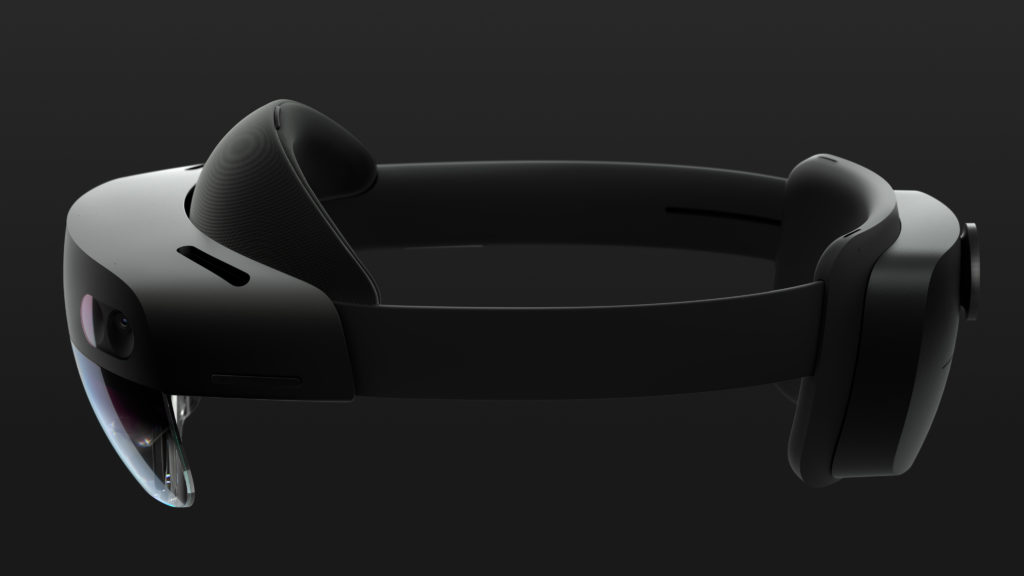Microsoft signs $22bn deal to supply US Army with HoloLens devices
The custom-made augmented reality (AR) headsets will be used both in training and in combat scenarios


Microsoft has agreed to supply the US Army with more than 120,000 bespoke HoloLens 2 augmented reality (AR) headsets for use by combat troops.
The agreement, worth $21.88 billion (roughly £16 billion) over the next ten years, will see the military supplied with these headsets so armed forces can fight, rehearse, and train using a single platform.
The HoloLens 2 device take advantage of AR and machine learning to produce a life-like mixed reality training environment so users can rehearse before engaging adversaries, according to CNBC. This is in addition to the capacity to connect accessory devices over 5G.
Dubbed the Integrated Visual Augmentation System (IVAS), the headset is a unique deployment for Microsoft’s business-centric AR device, which is ordinarily supplied to customers for training and guidance purposes.
Launched in 2019, the HoloLens 2 allows users to interact with three-dimensional holograms and popups through gestures, making it ideal for use by engineers and even medical staff.
The US Army’s IVAS devices, however, integrate high-resolution night and thermal vision, as well as additional sensors, into a heads-up display (HUD). This, the US military has claimed, will provide situational awareness, target engagement functionality, and more informed decision-making for troops.
“This award transitions IVAS to production and rapid fielding to deliver next-generation night vision and situational awareness capabilities to the Close Combat Force (CCF) at the speed of relevance,” said the US Army.
Get the ITPro daily newsletter
Sign up today and you will receive a free copy of our Future Focus 2025 report - the leading guidance on AI, cybersecurity and other IT challenges as per 700+ senior executives
“The unique and innovative partnership between the Army and Microsoft accelerated prototype system development through the Soldier Centered Design approach to deliver an unprecedented system to our CCF.”
Microsoft agreed a $480 million contract with the US Army in 2018 to develop and supply prototype AR headsets for use in training, as well as during combat missions. These custom headsets have been in development for two years, and the new deal represents an evolution of this relationship with Microsoft providing production versions of the IVAS devices.
The deal serves as yet another extension of the relationship between the US military and Microsoft after the firm won a widely-coveted $10 billion Pentagon cloud transformation contract in 2019, also known as JEDI.
The tightening of Microsoft's relationship with the US military, however, may cause some concern for a handful of employees anxious about the ethical implications of supplying technology to combat forces.
Some major companies, including Google, have stepped back from supplying the US military with their technology. Google sustained a backlash from its own employees, for example, after engaging with the Pentagon in Project Maven, in which AI technology would be supplied to the Pentagon to improve the performance of military drones.
As a result, the firm published an ethical code for AI and pledged not to supply its technology for use in any weapons system. Google did not rule out, however, continuing to work with military organisations in areas such as training and search and rescue.
Microsoft, by contrast, has previously defended its dealings with the US military, with president Brad Smith reaffirming the company’s commitment to engaging in deals such as JEDI and IVAS.
"Artificial intelligence, augmented reality and other technologies are raising new and profoundly important issues, including the ability of weapons to act autonomously," he wrote.
"As we have discussed these issues with governments, we've appreciated that no military in the world wants to wake up to discover that machines have started a war. But we can't expect these new developments to be addressed wisely if the people in the tech sector who know the most about technology withdraw from the conversation."

Keumars Afifi-Sabet is a writer and editor that specialises in public sector, cyber security, and cloud computing. He first joined ITPro as a staff writer in April 2018 and eventually became its Features Editor. Although a regular contributor to other tech sites in the past, these days you will find Keumars on LiveScience, where he runs its Technology section.

